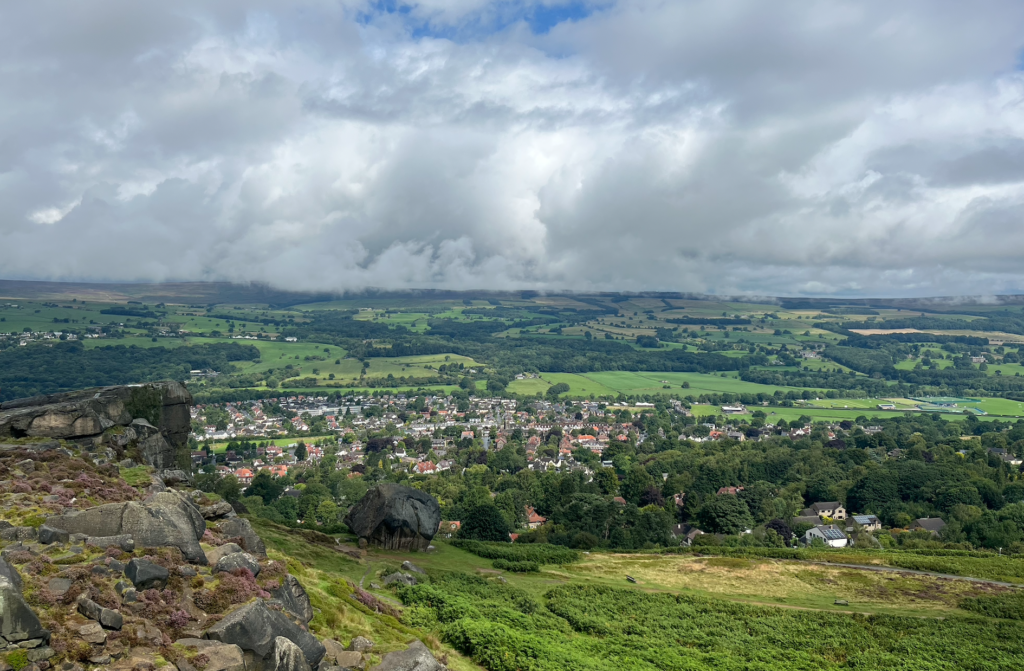A scattering of ashes.
Ilkley Moor is a small, windy, heather-covered hill in Yorkshire in northern England. It’s due north of the old textile city of Bradford, in the heartland of the coal-fired industrial revolution. At just over 400m high, the moor is home to grouse, sheep, bilberries and hordes of local tourists who jam the small car parks up by the Cow and Calf pub near the top. It’s been occupied for thousands of years -the hill, not the pub- and is dotted with Stone and Iron Age sites including an ancient Neolithic swastika carved into a rock on top of the moor. And don’t forget the Twelve Apostles – a dozen prehistoric standing stones arranged in a henge-like circle on the top.

Can tha’ sing ‘owt?
But in Yorkshire folk lore, this inconsequential hummock carries true weight. Mention its name to a born and bred Yorkshireman and I guarantee he’ll start singing. Eyes filling with warm, nostalgic tears, the holy words “On Ilkley moor baht’at” will spring forth from his lips set to a simple, familiar tune that all Yorkshire folk learn in their mother’s womb. He’ll then explain to you with slow gravitas that the phrase means “On Ilkely Moor without a hat”. Awe inspiring stuff. While most patriotic English people can sing along to (bear with me here) Sir Edward Elgar’s orchestration of Sir Hubert Parry’s gorgeous musical setting of the mildly insane William Blake’s classic poem, Jerusalem -which ponders whether Jesus briefly created heaven in the heart of industrial England- Yorkshire folk prefer to sing about small hills and hats.
Continue reading “A Grand Day Out To Ilkley Moor”
